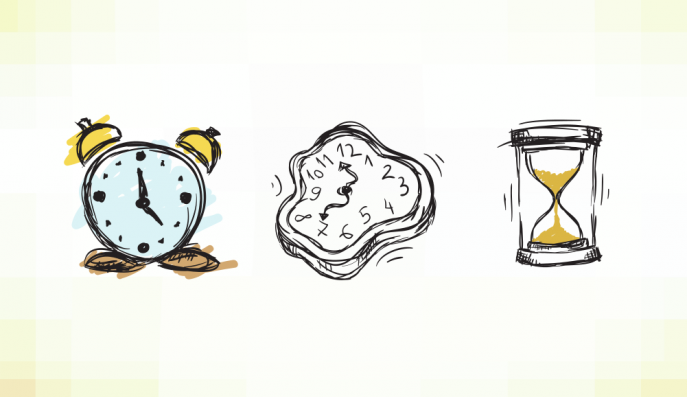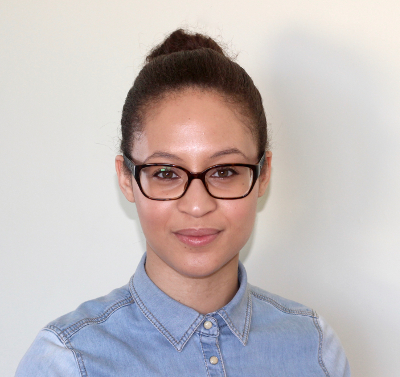Expert Ideas For Last-Minute Revision Tips To Share With Students

Quick and easy study tips from prioritising to taking eye breaks and avoiding the ineffective skim-reading of notes to give your pupils peace of mind…

- by Teachwire

It’s never too late for an extra boost.
So (because we know they’re not listening to you any more) we’ve asked a handful of experts for their favourite, last-minute revision tips you can share with your students.
The perpetual candidate
Prioritise. Check the syllabus and make a list of five to ten things that you still need to cover. My weakest area has always been statistics, so I make sure any equations I’ll need are fresh in my short-term memory the night before an important exam. Keep a checklist and tick each area off as you cover it. It’s really important to stay organised when you’re juggling tasks, and checking off a list is also good for morale. By the time you’ve worked to the end of your list you should be feeling reassured about each topic and confident going into the exam.
 Smita Joshi is an author, registered yoga teacher
Smita Joshi is an author, registered yoga teacher
and life coach. You can find out more on her website Karma and Diamonds.
The online learning advocate
The way most of us revise is pretty ineffective; all-nighters, re-reading notes, underlining – there’s a fair amount of research that shows these aren’t great ways to learn. What is more effective is frequent self-quizzing, shorter spaced-out revision sessions, and presenting information to yourself in different ways throughout your study time. As hard as it is when you’re a busy student, planning ahead makes a big difference. If you can, slot out a little time each day on the days leading up to an exam to study in different ways: try using a study application one day, review with friends the next, create a practice test on the third. You’ll be much better prepared for test day.
 Matthew Glotzbach is CEO of online learning resource Quizlet.
Matthew Glotzbach is CEO of online learning resource Quizlet.
 Angel Nkomo is a student coach for The Mind Set,
Angel Nkomo is a student coach for The Mind Set,
a peer-to-peer network created by the BBC. Click here
to find out more.
The life coach
Try this breathing exercise to promote focus and confidence. Place the index and middle fingers of your right hand between your eyebrows. Shut the right nostril with your thumb and inhale slowly through the left nostril, counting to four. Close the left nostril with your ring finger, open the right nostril and exhale long and smooth to a count of four. Inhale smoothly through the right nostril counting to four and then close that nostril with your right thumb. Exhale through the left nostril, then inhale to a count of four. Complete ten full rounds.
 Smita Joshi is an author, registered yoga teacher
Smita Joshi is an author, registered yoga teacher
and life coach. You can find out more on her website Karma and Diamonds.
The online learning advocate
The way most of us revise is pretty ineffective; all-nighters, re-reading notes, underlining – there’s a fair amount of research that shows these aren’t great ways to learn. What is more effective is frequent self-quizzing, shorter spaced-out revision sessions, and presenting information to yourself in different ways throughout your study time. As hard as it is when you’re a busy student, planning ahead makes a big difference. If you can, slot out a little time each day on the days leading up to an exam to study in different ways: try using a study application one day, review with friends the next, create a practice test on the third. You’ll be much better prepared for test day.
 Matthew Glotzbach is CEO of online learning resource Quizlet.
Matthew Glotzbach is CEO of online learning resource Quizlet.
 Bhavin Shah is an optometrist and visual
Bhavin Shah is an optometrist and visual
performance coach. Head to Central Vision Opticians
to find out more.
The peer-to-peer mentor
Tailor the revision to your interests. I got lost in the revision quite a lot; I’d get distracted and lose concentration really fast. To keep myself on track I’d try to revise in a way that kept me interested. I’m into music and creative subjects so I’d watch YouTube videos of teachers answering questions or maths songs – cringey as it sounds it’s helpful too. I got really stressed during my exams, but as much as other people told me I could cope I needed to hear it from myself. When I was struggling I’d try to take a moment to breathe and tell myself that it was going to be ok.
 Angel Nkomo is a student coach for The Mind Set,
Angel Nkomo is a student coach for The Mind Set,
a peer-to-peer network created by the BBC. Click here
to find out more.
The life coach
Try this breathing exercise to promote focus and confidence. Place the index and middle fingers of your right hand between your eyebrows. Shut the right nostril with your thumb and inhale slowly through the left nostril, counting to four. Close the left nostril with your ring finger, open the right nostril and exhale long and smooth to a count of four. Inhale smoothly through the right nostril counting to four and then close that nostril with your right thumb. Exhale through the left nostril, then inhale to a count of four. Complete ten full rounds.
 Smita Joshi is an author, registered yoga teacher
Smita Joshi is an author, registered yoga teacher
and life coach. You can find out more on her website Karma and Diamonds.
The online learning advocate
The way most of us revise is pretty ineffective; all-nighters, re-reading notes, underlining – there’s a fair amount of research that shows these aren’t great ways to learn. What is more effective is frequent self-quizzing, shorter spaced-out revision sessions, and presenting information to yourself in different ways throughout your study time. As hard as it is when you’re a busy student, planning ahead makes a big difference. If you can, slot out a little time each day on the days leading up to an exam to study in different ways: try using a study application one day, review with friends the next, create a practice test on the third. You’ll be much better prepared for test day.
 Matthew Glotzbach is CEO of online learning resource Quizlet.
Matthew Glotzbach is CEO of online learning resource Quizlet.
 Richard Taylor is head of chemistry at Giggleswick Independent Co-ed School, where 91% of his pupils achieved an A* or A in their chemistry GCSE.
Richard Taylor is head of chemistry at Giggleswick Independent Co-ed School, where 91% of his pupils achieved an A* or A in their chemistry GCSE.
The optometrist
Take regular breaks when you revise! The muscles inside and the around the eyes tire within 30 to 50 minutes and the entire visual system starts to fatigue after this time. This means you’ll remember less and find it harder to make sense of the material. The optimum pattern when studying is to take a complete break for 15 minutes every 50 minutes combined with looking away from close work for 20 seconds every 20 minutes in the middle of your study time. Remember, taking a break doesn’t mean checking email or watching a Youtube video! Get up, look into the distance and walk around.
 Bhavin Shah is an optometrist and visual
Bhavin Shah is an optometrist and visual
performance coach. Head to Central Vision Opticians
to find out more.
The peer-to-peer mentor
Tailor the revision to your interests. I got lost in the revision quite a lot; I’d get distracted and lose concentration really fast. To keep myself on track I’d try to revise in a way that kept me interested. I’m into music and creative subjects so I’d watch YouTube videos of teachers answering questions or maths songs – cringey as it sounds it’s helpful too. I got really stressed during my exams, but as much as other people told me I could cope I needed to hear it from myself. When I was struggling I’d try to take a moment to breathe and tell myself that it was going to be ok.
 Angel Nkomo is a student coach for The Mind Set,
Angel Nkomo is a student coach for The Mind Set,
a peer-to-peer network created by the BBC. Click here
to find out more.
The life coach
Try this breathing exercise to promote focus and confidence. Place the index and middle fingers of your right hand between your eyebrows. Shut the right nostril with your thumb and inhale slowly through the left nostril, counting to four. Close the left nostril with your ring finger, open the right nostril and exhale long and smooth to a count of four. Inhale smoothly through the right nostril counting to four and then close that nostril with your right thumb. Exhale through the left nostril, then inhale to a count of four. Complete ten full rounds.
 Smita Joshi is an author, registered yoga teacher
Smita Joshi is an author, registered yoga teacher
and life coach. You can find out more on her website Karma and Diamonds.
The online learning advocate
The way most of us revise is pretty ineffective; all-nighters, re-reading notes, underlining – there’s a fair amount of research that shows these aren’t great ways to learn. What is more effective is frequent self-quizzing, shorter spaced-out revision sessions, and presenting information to yourself in different ways throughout your study time. As hard as it is when you’re a busy student, planning ahead makes a big difference. If you can, slot out a little time each day on the days leading up to an exam to study in different ways: try using a study application one day, review with friends the next, create a practice test on the third. You’ll be much better prepared for test day.
 Matthew Glotzbach is CEO of online learning resource Quizlet.
Matthew Glotzbach is CEO of online learning resource Quizlet.
 Kamilah Hale is founder of private tuition service
Kamilah Hale is founder of private tuition service
Kin Learning. Head on over to kinlearning.com for further details.
The teacher
You should make sure that you understand the structure of the exam – including how much time should you spend on each question. In chemistry it’s easy, roughly a minute per mark, so a six-mark question needs about six minutes spent completing it. Also take advantage of any extra revision sessions organised by your teachers. You will have a chance to pick up some good tips on exam technique and improve your factual knowledge.
 Richard Taylor is head of chemistry at Giggleswick Independent Co-ed School, where 91% of his pupils achieved an A* or A in their chemistry GCSE.
Richard Taylor is head of chemistry at Giggleswick Independent Co-ed School, where 91% of his pupils achieved an A* or A in their chemistry GCSE.
The optometrist
Take regular breaks when you revise! The muscles inside and the around the eyes tire within 30 to 50 minutes and the entire visual system starts to fatigue after this time. This means you’ll remember less and find it harder to make sense of the material. The optimum pattern when studying is to take a complete break for 15 minutes every 50 minutes combined with looking away from close work for 20 seconds every 20 minutes in the middle of your study time. Remember, taking a break doesn’t mean checking email or watching a Youtube video! Get up, look into the distance and walk around.
 Bhavin Shah is an optometrist and visual
Bhavin Shah is an optometrist and visual
performance coach. Head to Central Vision Opticians
to find out more.
The peer-to-peer mentor
Tailor the revision to your interests. I got lost in the revision quite a lot; I’d get distracted and lose concentration really fast. To keep myself on track I’d try to revise in a way that kept me interested. I’m into music and creative subjects so I’d watch YouTube videos of teachers answering questions or maths songs – cringey as it sounds it’s helpful too. I got really stressed during my exams, but as much as other people told me I could cope I needed to hear it from myself. When I was struggling I’d try to take a moment to breathe and tell myself that it was going to be ok.
 Angel Nkomo is a student coach for The Mind Set,
Angel Nkomo is a student coach for The Mind Set,
a peer-to-peer network created by the BBC. Click here
to find out more.
The life coach
Try this breathing exercise to promote focus and confidence. Place the index and middle fingers of your right hand between your eyebrows. Shut the right nostril with your thumb and inhale slowly through the left nostril, counting to four. Close the left nostril with your ring finger, open the right nostril and exhale long and smooth to a count of four. Inhale smoothly through the right nostril counting to four and then close that nostril with your right thumb. Exhale through the left nostril, then inhale to a count of four. Complete ten full rounds.
 Smita Joshi is an author, registered yoga teacher
Smita Joshi is an author, registered yoga teacher
and life coach. You can find out more on her website Karma and Diamonds.
The online learning advocate
The way most of us revise is pretty ineffective; all-nighters, re-reading notes, underlining – there’s a fair amount of research that shows these aren’t great ways to learn. What is more effective is frequent self-quizzing, shorter spaced-out revision sessions, and presenting information to yourself in different ways throughout your study time. As hard as it is when you’re a busy student, planning ahead makes a big difference. If you can, slot out a little time each day on the days leading up to an exam to study in different ways: try using a study application one day, review with friends the next, create a practice test on the third. You’ll be much better prepared for test day.
 Matthew Glotzbach is CEO of online learning resource Quizlet.
Matthew Glotzbach is CEO of online learning resource Quizlet.
 Dr Andy Johnson is a senior lecturer in psychology at Bournemouth University.
Dr Andy Johnson is a senior lecturer in psychology at Bournemouth University.
The private tutor
Make the most of the journey to and from school by debating an essay topic with a friend. Select an exam question to discuss and each take a different point of view. One person should make a point – with evidence – and the other can either agree and add more evidence, or disagree and explain why. Make sure to support your argument with facts, like scientific research for a subject like psychology or with quotations in English. This is a great way to develop critical thinking skills, practise constructing a logical argument, and also learn new quotations – all essential skills for gaining extra marks in your exam.
 Kamilah Hale is founder of private tuition service
Kamilah Hale is founder of private tuition service
Kin Learning. Head on over to kinlearning.com for further details.
The teacher
You should make sure that you understand the structure of the exam – including how much time should you spend on each question. In chemistry it’s easy, roughly a minute per mark, so a six-mark question needs about six minutes spent completing it. Also take advantage of any extra revision sessions organised by your teachers. You will have a chance to pick up some good tips on exam technique and improve your factual knowledge.
 Richard Taylor is head of chemistry at Giggleswick Independent Co-ed School, where 91% of his pupils achieved an A* or A in their chemistry GCSE.
Richard Taylor is head of chemistry at Giggleswick Independent Co-ed School, where 91% of his pupils achieved an A* or A in their chemistry GCSE.
The optometrist
Take regular breaks when you revise! The muscles inside and the around the eyes tire within 30 to 50 minutes and the entire visual system starts to fatigue after this time. This means you’ll remember less and find it harder to make sense of the material. The optimum pattern when studying is to take a complete break for 15 minutes every 50 minutes combined with looking away from close work for 20 seconds every 20 minutes in the middle of your study time. Remember, taking a break doesn’t mean checking email or watching a Youtube video! Get up, look into the distance and walk around.
 Bhavin Shah is an optometrist and visual
Bhavin Shah is an optometrist and visual
performance coach. Head to Central Vision Opticians
to find out more.
The peer-to-peer mentor
Tailor the revision to your interests. I got lost in the revision quite a lot; I’d get distracted and lose concentration really fast. To keep myself on track I’d try to revise in a way that kept me interested. I’m into music and creative subjects so I’d watch YouTube videos of teachers answering questions or maths songs – cringey as it sounds it’s helpful too. I got really stressed during my exams, but as much as other people told me I could cope I needed to hear it from myself. When I was struggling I’d try to take a moment to breathe and tell myself that it was going to be ok.
 Angel Nkomo is a student coach for The Mind Set,
Angel Nkomo is a student coach for The Mind Set,
a peer-to-peer network created by the BBC. Click here
to find out more.
The life coach
Try this breathing exercise to promote focus and confidence. Place the index and middle fingers of your right hand between your eyebrows. Shut the right nostril with your thumb and inhale slowly through the left nostril, counting to four. Close the left nostril with your ring finger, open the right nostril and exhale long and smooth to a count of four. Inhale smoothly through the right nostril counting to four and then close that nostril with your right thumb. Exhale through the left nostril, then inhale to a count of four. Complete ten full rounds.
 Smita Joshi is an author, registered yoga teacher
Smita Joshi is an author, registered yoga teacher
and life coach. You can find out more on her website Karma and Diamonds.
The online learning advocate
The way most of us revise is pretty ineffective; all-nighters, re-reading notes, underlining – there’s a fair amount of research that shows these aren’t great ways to learn. What is more effective is frequent self-quizzing, shorter spaced-out revision sessions, and presenting information to yourself in different ways throughout your study time. As hard as it is when you’re a busy student, planning ahead makes a big difference. If you can, slot out a little time each day on the days leading up to an exam to study in different ways: try using a study application one day, review with friends the next, create a practice test on the third. You’ll be much better prepared for test day.
 Matthew Glotzbach is CEO of online learning resource Quizlet.
Matthew Glotzbach is CEO of online learning resource Quizlet.
 Dr Abigail Cole is an anaesthetic trainee at Whittington Hospital, North London, and has taken 20 medical exams since leaving further education.
Dr Abigail Cole is an anaesthetic trainee at Whittington Hospital, North London, and has taken 20 medical exams since leaving further education.
The memory expert
‘The student illusion’ refers to a false belief that simply reading over your notes will be an adequate revision strategy. In fact, it’s a very poor strategy. Memory is affected by how deeply you process the to-be-remembered information. Simply reading over the information is shallow or superficial processing and will result in weak memory. A far better strategy is to test yourself. Perhaps create some revision cue-cards and repeatedly test yourself on that information. Research has shown that testing yourself results in far more items being remembered. Make sure that you check each time whether you were correct or you might reinforce memory for the wrong content.
 Dr Andy Johnson is a senior lecturer in psychology at Bournemouth University.
Dr Andy Johnson is a senior lecturer in psychology at Bournemouth University.
The private tutor
Make the most of the journey to and from school by debating an essay topic with a friend. Select an exam question to discuss and each take a different point of view. One person should make a point – with evidence – and the other can either agree and add more evidence, or disagree and explain why. Make sure to support your argument with facts, like scientific research for a subject like psychology or with quotations in English. This is a great way to develop critical thinking skills, practise constructing a logical argument, and also learn new quotations – all essential skills for gaining extra marks in your exam.
 Kamilah Hale is founder of private tuition service
Kamilah Hale is founder of private tuition service
Kin Learning. Head on over to kinlearning.com for further details.
The teacher
You should make sure that you understand the structure of the exam – including how much time should you spend on each question. In chemistry it’s easy, roughly a minute per mark, so a six-mark question needs about six minutes spent completing it. Also take advantage of any extra revision sessions organised by your teachers. You will have a chance to pick up some good tips on exam technique and improve your factual knowledge.
 Richard Taylor is head of chemistry at Giggleswick Independent Co-ed School, where 91% of his pupils achieved an A* or A in their chemistry GCSE.
Richard Taylor is head of chemistry at Giggleswick Independent Co-ed School, where 91% of his pupils achieved an A* or A in their chemistry GCSE.
The optometrist
Take regular breaks when you revise! The muscles inside and the around the eyes tire within 30 to 50 minutes and the entire visual system starts to fatigue after this time. This means you’ll remember less and find it harder to make sense of the material. The optimum pattern when studying is to take a complete break for 15 minutes every 50 minutes combined with looking away from close work for 20 seconds every 20 minutes in the middle of your study time. Remember, taking a break doesn’t mean checking email or watching a Youtube video! Get up, look into the distance and walk around.
 Bhavin Shah is an optometrist and visual
Bhavin Shah is an optometrist and visual
performance coach. Head to Central Vision Opticians
to find out more.
The peer-to-peer mentor
Tailor the revision to your interests. I got lost in the revision quite a lot; I’d get distracted and lose concentration really fast. To keep myself on track I’d try to revise in a way that kept me interested. I’m into music and creative subjects so I’d watch YouTube videos of teachers answering questions or maths songs – cringey as it sounds it’s helpful too. I got really stressed during my exams, but as much as other people told me I could cope I needed to hear it from myself. When I was struggling I’d try to take a moment to breathe and tell myself that it was going to be ok.
 Angel Nkomo is a student coach for The Mind Set,
Angel Nkomo is a student coach for The Mind Set,
a peer-to-peer network created by the BBC. Click here
to find out more.
The life coach
Try this breathing exercise to promote focus and confidence. Place the index and middle fingers of your right hand between your eyebrows. Shut the right nostril with your thumb and inhale slowly through the left nostril, counting to four. Close the left nostril with your ring finger, open the right nostril and exhale long and smooth to a count of four. Inhale smoothly through the right nostril counting to four and then close that nostril with your right thumb. Exhale through the left nostril, then inhale to a count of four. Complete ten full rounds.
 Smita Joshi is an author, registered yoga teacher
Smita Joshi is an author, registered yoga teacher
and life coach. You can find out more on her website Karma and Diamonds.
The online learning advocate
The way most of us revise is pretty ineffective; all-nighters, re-reading notes, underlining – there’s a fair amount of research that shows these aren’t great ways to learn. What is more effective is frequent self-quizzing, shorter spaced-out revision sessions, and presenting information to yourself in different ways throughout your study time. As hard as it is when you’re a busy student, planning ahead makes a big difference. If you can, slot out a little time each day on the days leading up to an exam to study in different ways: try using a study application one day, review with friends the next, create a practice test on the third. You’ll be much better prepared for test day.
 Matthew Glotzbach is CEO of online learning resource Quizlet.
Matthew Glotzbach is CEO of online learning resource Quizlet.











